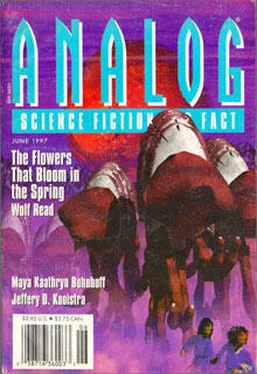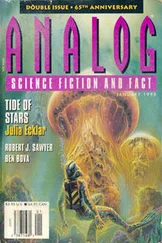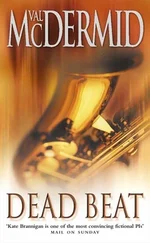Laurence Janifer - The Dead Beat
Здесь есть возможность читать онлайн «Laurence Janifer - The Dead Beat» весь текст электронной книги совершенно бесплатно (целиком полную версию без сокращений). В некоторых случаях можно слушать аудио, скачать через торрент в формате fb2 и присутствует краткое содержание. Год выпуска: 1997, Издательство: Dell Magazines, Жанр: Фантастика и фэнтези, на английском языке. Описание произведения, (предисловие) а так же отзывы посетителей доступны на портале библиотеки ЛибКат.
- Название:The Dead Beat
- Автор:
- Издательство:Dell Magazines
- Жанр:
- Год:1997
- ISBN:нет данных
- Рейтинг книги:4 / 5. Голосов: 1
-
Избранное:Добавить в избранное
- Отзывы:
-
Ваша оценка:
- 80
- 1
- 2
- 3
- 4
- 5
The Dead Beat: краткое содержание, описание и аннотация
Предлагаем к чтению аннотацию, описание, краткое содержание или предисловие (зависит от того, что написал сам автор книги «The Dead Beat»). Если вы не нашли необходимую информацию о книге — напишите в комментариях, мы постараемся отыскать её.
The Dead Beat — читать онлайн бесплатно полную книгу (весь текст) целиком
Ниже представлен текст книги, разбитый по страницам. Система сохранения места последней прочитанной страницы, позволяет с удобством читать онлайн бесплатно книгу «The Dead Beat», без необходимости каждый раз заново искать на чём Вы остановились. Поставьте закладку, и сможете в любой момент перейти на страницу, на которой закончили чтение.
Интервал:
Закладка:
The Dead Beat
by Laurence M. Janifer

Illustration by Mike Aspengren
Music (there are still people who say this, for God’s sake) is the universal language —which is nonsense. Don’t misunderstand me; I like music, of several sorts, from classical to the peculiar ninth-tone bass chants you’ll hear on Alphacent. But even preSpace, anybody who quoted that silly saying should’ve been sentenced to alternating days of German, Syrian, and Thai concerts for a year. Not that you can’t like them all, though I know no one who does (I know several who pretend, but why burst bubbles?)—but the musics are as different as the languages used to be. I speak as an expert on the subject, all of a sudden, having recently spent some time on Apelles, where there are concerts of all persuasions—as well as art exhibits, network publishers and readings, dance recitals, comweb share groups, and you name it—every day of every eight-day week, all the year round as, I think, the Christmas annuals used to say.
The almost -universal language, among human beings, is something Marietta Jink (who is a musician, and a fine one) knows all about. It uses music often as a background, sometimes as a stimulus, and at least once as a food (one of the and Cleopatras, my scrappy classical training tells me, though whether Shakespeare’s Antony or Shaw’s Caesar I can’t be sure), and it is known as love, or romance, or (by the very learned in preSpace scientific junk) animal magnetism.
Marietta Jink has just about all the animal magnetism possible to a human female, as far as most human males are concerned. She had once turned it on me during a previous stopover on Apelles, relaxing in the Apelles Hotel Dome, when she had been struggling with a problem of orchestra finance (she’s conductor of the Williamson Philharmonic, and she is as accomplished as her orchestra, something which is not true of all conductors).
I’d solved her problem for her very well and very neatly, if you don’t mind the momentary preen, and when she got in touch with me again and asked me to revisit my glimpses of Apelles and see if I could provide a little more aid, I was pleased, but not entirely surprised. Some people seem born to trouble (“as the sparks fly upward,” the bible says, and if sparks are flying upward around you, you are probably in trouble at that), and Marietta Jink, though she is one of my favorite rosebuds, had always seemed to me to be one of them.
This time, it turned out when I arrived, subscribers to the Williamson season were dying out.
Well, you may be saying, lots of season subscribers are elderly people, and elderly people do have this habit of dying out quite a lot; it’s how they stop being elderly. But the fatalities seemed to be in all age groups, with a noticeable statistical preference for longer-time subscribers; someone who’d been attending Williamson Philharmonic concerts for five years, even though he was, say, twenty-seven, was more likely to have keeled over than someone of seventy-five who’d just bought his first season subscription. (Or her first season subscription, of course, but if I have to mind my pronouns all that carefully I’ll have to add in anything up to seven non-human sexes as well—my audience for these reports is small but uncommonly varied—and things will get confusing for no good reason. Let’s stick to Standard English, such as it is, and keep this as simple as we can—which is, I’m afraid, not very.) And the numbers were startling: about 11 percent of last season’s subscribers were now gone. It was the sort of death rate you expect of an infantry battalion.
The word hadn’t got out, as far as Marietta knew—it’s not quite the sort of thing your average reporter, print, net or 3V, is going to happen upon very easily—but she was terrified that it was going to get out, and ruin the Williamson for good; people won’t take to buying concert subscriptions at the risk of death.
There were, more importantly, all these fatalities. Marietta was sure coincidence wasn’t at work—and though coincidences do happen, even more often than we like to think, I tended to agree with her, once I got a look at the details—and she wanted to stop whatever was causing the deaths before any more people got killed. Maybe it was something the orchestra was doing, or something the hall was emitting, and therefore something Marietta could put a stop to.
But she couldn’t imagine what, and neither could I. Sitting in a concert hall on Apelles is not normally considered dangerous to your health, and nobody was lying in wait outside Petrarch Hall to bash people over the head with trombones.
The causes of death, in fact, varied—that was the first thing I asked about, of course—but nearly all were fairly common natural causes: stroke, aneurysm, heart attack. The remainder were scattered all over the map, everything from kidney failure to simple murder. (Apelles has a comparatively low murder rate, but “comparatively” is the word; the inhabitants may be fine artists, but they’re still human beings.) Those scattered deaths looked like the normal curve, so to speak. The immense number of deaths from heart trouble, stroke or aneurysm looked (mostly) like the inexplicable bulge.
“Somebody,” I said, “is playing hob with your audience’s circulatory systems.”
“And we haven’t programmed the Ride of the Valkyries in five years.”
We were sitting in the Apelles Hotel Dome (not a great many people even know about Apelles, which is basically an arts colony at the hell of a high level, and I’d just as soon keep it that way; it’s a wonderful place to spend a few weeks, and I hate crowds), drinking remarkably good coffee and trying to make sense out of a large pile of computer printout; the hotel is a bit old-fashioned, and we were actually working from real (well, glare-treated) paper.
The coffee was labeled Sumatra Mandheling, which I doubt, but it was at least a remarkable imitation of one of the best of all coffees. (It’s available on most of the Home Worlds, just by the way, and is worth looking up.) But at the time, I don’t think I even finished two cups; the statistics kept jumping up and biting me, which is bad for the digestion.
“Is it only subscribers,” I said, “or are casual audience members dropping like flies, too?”
Marietta shook her head. “I don’t know how you could tell,” she said, “without making a public announcement of some sort—will anybody whose friend or relative attended a Williamson Orchestra concert and died, within the past five years, please get in touch with us—that sort of thing.”
“Bound to arouse curiosity,” I said.
“I assume it hits everybody in an audience, whatever it is,” she said. She has a remarkable, elfin face, the color of a very light honey, and the expression on it was as remote as the Home Worlds, and as worried as I’d ever seen. “What would target only subscribers?”
“Well, they’re likely to attend more often,” I said, “which would expose them more often to a resident plague, if there is one. And offhand, it does look as if something is doing that—the preference for longer-term subscribers points that way, and really doesn’t point any other way.”
“But what could the Williamson be doing, to subscribers or to anybody?” she said. “It must be something in the hall itself, some sort of chemical leak, or some sort of radioactivity, or—”
“Is your orchestra the only organization that uses Petrarch Hall?”
“Of course not,” she said. “There are weekly new-jazz concerts, a monthly series on Syrian music, a lecture series—I forget the topic; does it matter?—”
Читать дальшеИнтервал:
Закладка:
Похожие книги на «The Dead Beat»
Представляем Вашему вниманию похожие книги на «The Dead Beat» списком для выбора. Мы отобрали схожую по названию и смыслу литературу в надежде предоставить читателям больше вариантов отыскать новые, интересные, ещё непрочитанные произведения.
Обсуждение, отзывы о книге «The Dead Beat» и просто собственные мнения читателей. Оставьте ваши комментарии, напишите, что Вы думаете о произведении, его смысле или главных героях. Укажите что конкретно понравилось, а что нет, и почему Вы так считаете.












